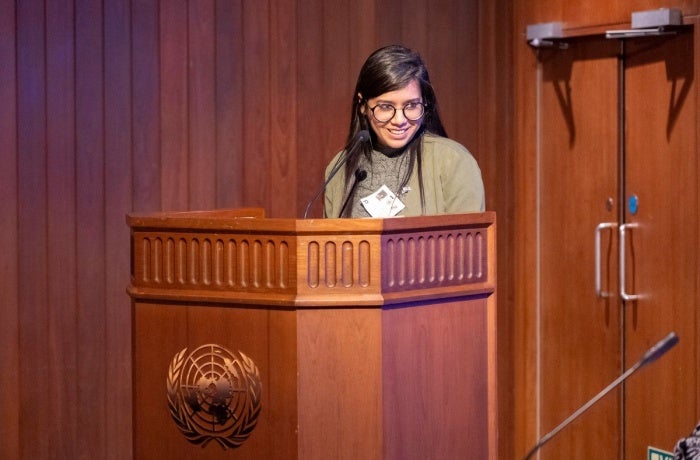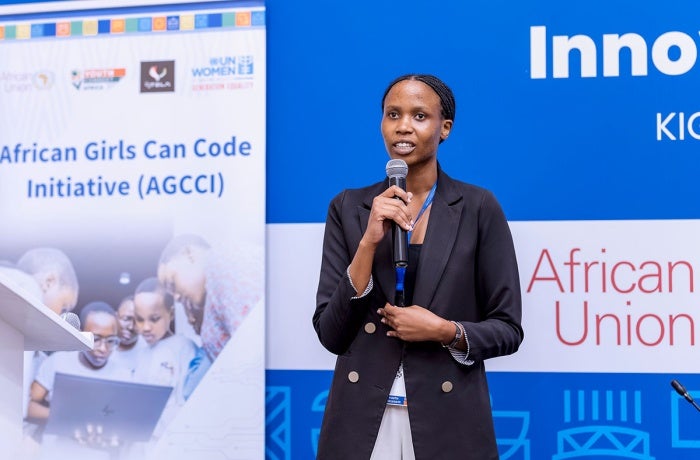UN Women Executive Director visits Kenya, galvanizes action for Generation Equality
UN Women Executive Director Sima Bahous carried out a two-day mission in Kenya, where she saw UN Women’s work first-hand, and met with civil society groups and partners, to strengthen partnerships, ignite public discourse towards Generation Equality and galvanize action for gender equality and women’s empowerment in the country.
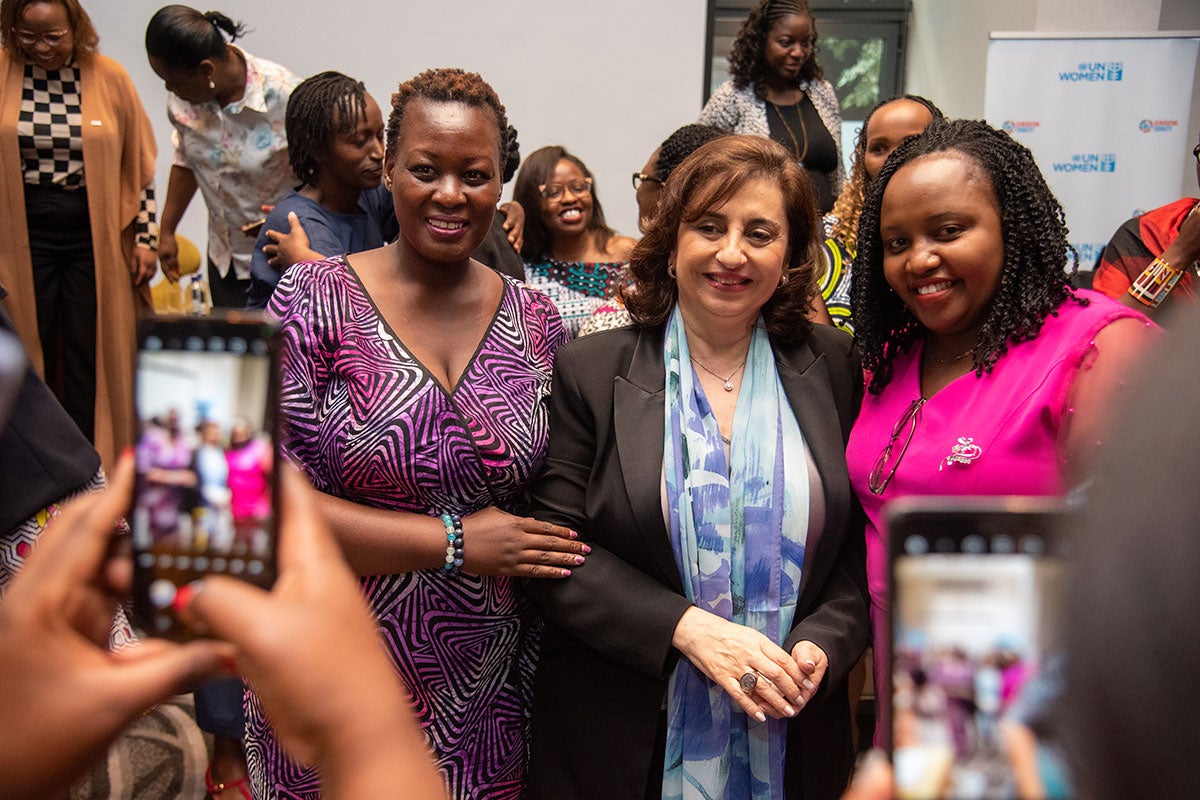
The mission took place as the Executive Director joined other UN officials for the United Nations Chief Executive Board meeting, held on 3-4 May in Nairobi, Kenya. The engagements of the Executive Director in Kenya underscored the country’s progress towards gender equality and women’s empowerment, while also providing an opportunity to share recommendations to further strengthen Kenya’s efforts in safeguarding women’s rights.
The mission was also a chance to review progress achieved since Kenya, in 2021, became a global co-lead of the Generation Equality Action Coalition on ending gender-based violence. Under this Action Coalition, the Government of Kenya pledged twelve concrete commitments on ending all forms of violence against women and girls, and the Government has since developed a five-year road map to achieve the commitments along with partners.
In a meeting with the country’s Chief Justice, Martha K. Koome, the Executive Director discussed collaboration to strengthen access to justice for women and girls in Kenya. Chief Justice Martha K. Koome is the first woman to hold the office since the Kenyan Judiciary was established more than a century ago. Ms. Bahous commended the Chief Justice for her notable commitment to improving access to justice for poor, marginalized and vulnerable populations, including women, as evidenced by various initiatives put in place under her stewardship such as specialized courts for survivors of gender-based violence (SGBV) and the specialized SGBV Court Users Committees for enhanced coordination.
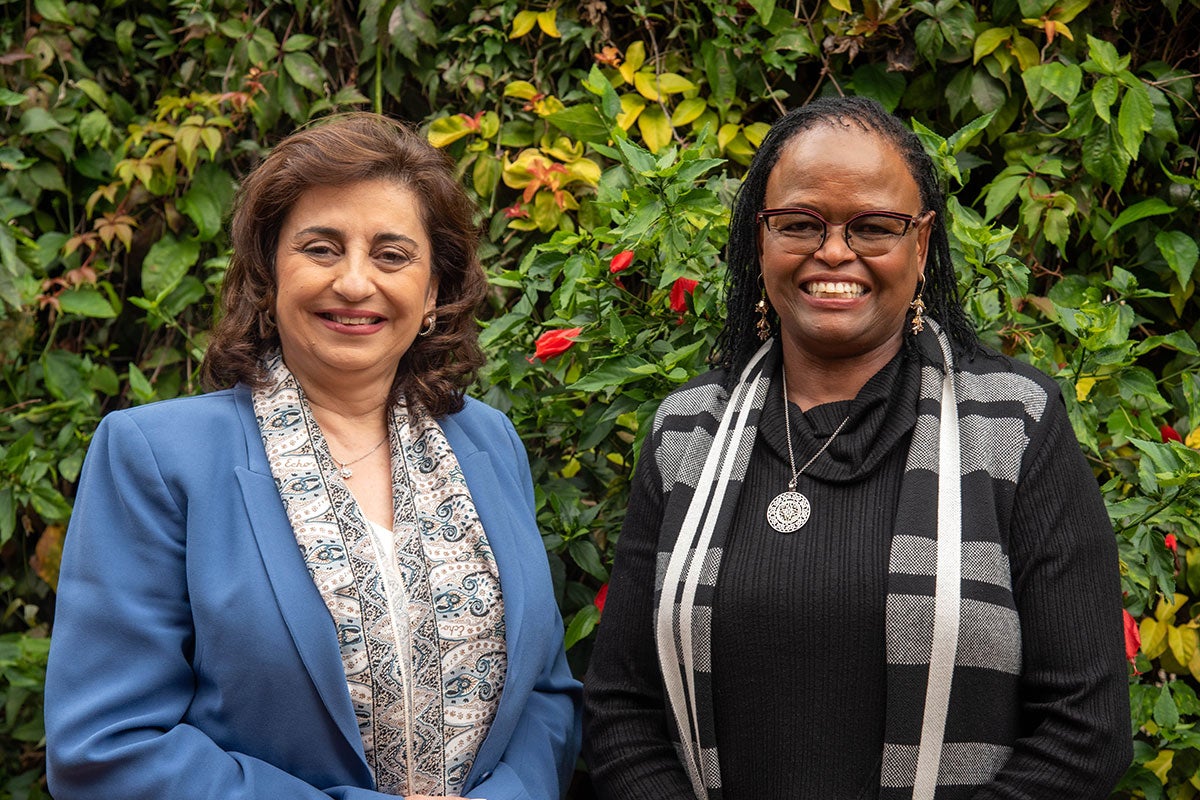
Ms. Bahous continued to lead momentum for Generation Equality at a reception hosted by H.E. Pirkka Tapiola, Finnish Ambassador to Kenya, Somalia, Eritrea and the Seychelles. At an informal event that brought together key development partners, Ms. Bahous discussed UN Women’s key strategic priorities, unfinished business related to women’s rights in the country and next steps on Generation Equality.
On the importance of partnership, Ms. Bahous stated: "We have to accelerate implementation and realization of SDG5 together with our partners; Otherwise, it will take over 300 years to reach our goal.”
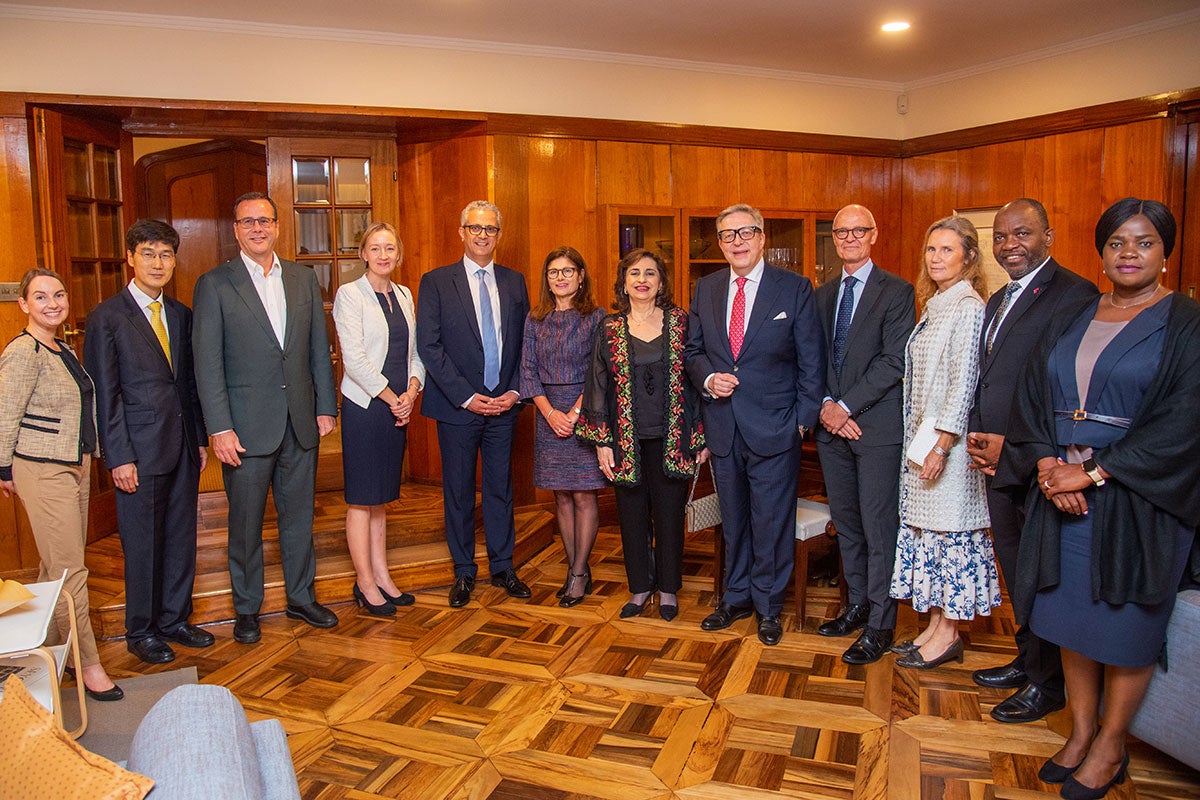
A highlight of the mission was a visit to the Maisha Girls Safe House, which provides safety and holistic and expert support to girls who are survivors of violence—helping to render access to justice more inclusive and more effective. There, Ms. Bahous spent time with the young survivors and listened to their feedback on challenges they face.
“Thank you for sharing your stories and I am proud to see how far you’ve gone. Please be assured that we will not rest until we see justice for each of you,” said Ms. Bahous at the Safe House.
Along with their challenges, Maisha Girls Safe House residents also shared their stories of success.
“It feels so sweet and great to find home away from home,” shared Faith*, who spent two years in the House after she experienced violence at home, “I found peace and support in this house. I also found a supporter here who helped me with my studies. I am happy to share with you that I will be graduating in December 2023, earning a degree in Public Health. I work at Maisha Girls Safe House as a social worker now.”
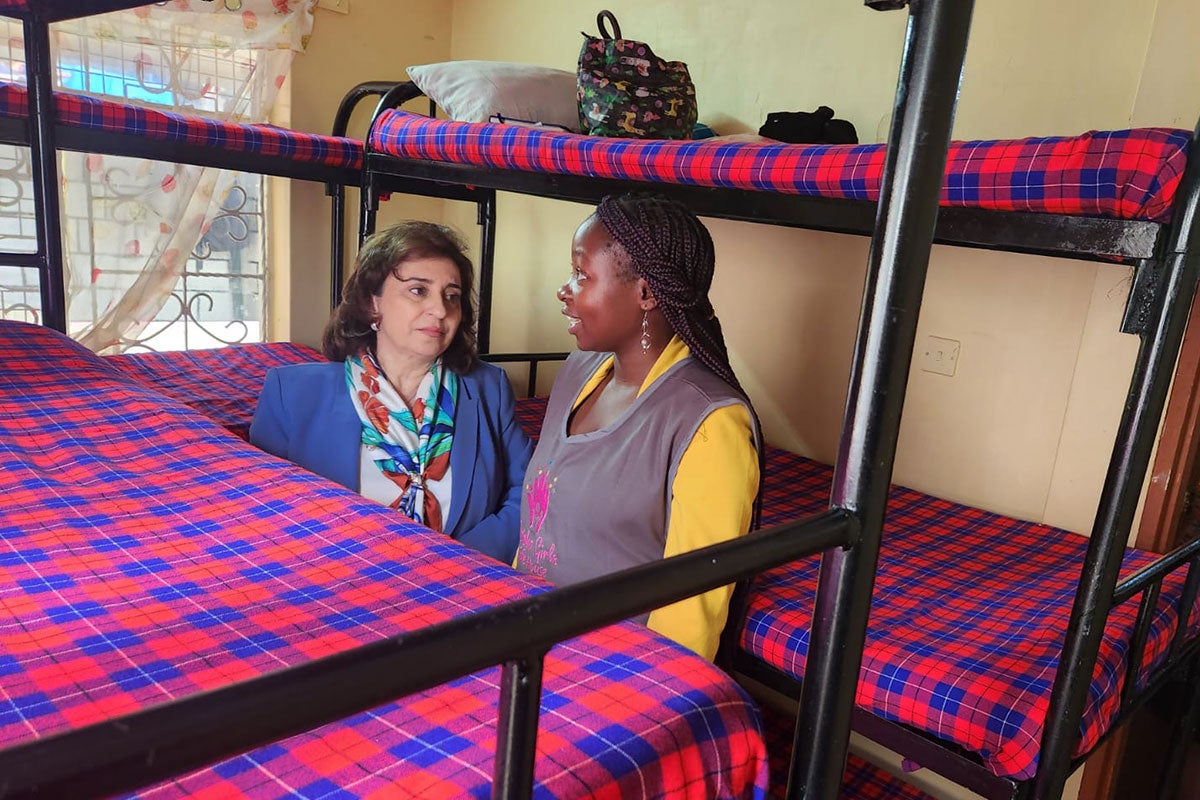
According to the GEF status update report issued by the Ministry of Gender, Generation Equality Secretariat, in June 2022, there were 54 private shelters and GBV rescue centers operational in 18 counties across Kenya, and only 2 managed by the Government.
UN Women Kenya supports partners in providing essential services, including shelters, to GBV survivors. It also supports the government through the Ministry of Gender to develop relevant guidelines and Standard Operating Procedures for GBV shelters and safe houses, conducting shelter needs assessment to inform specific support and advocacy with County Governments.
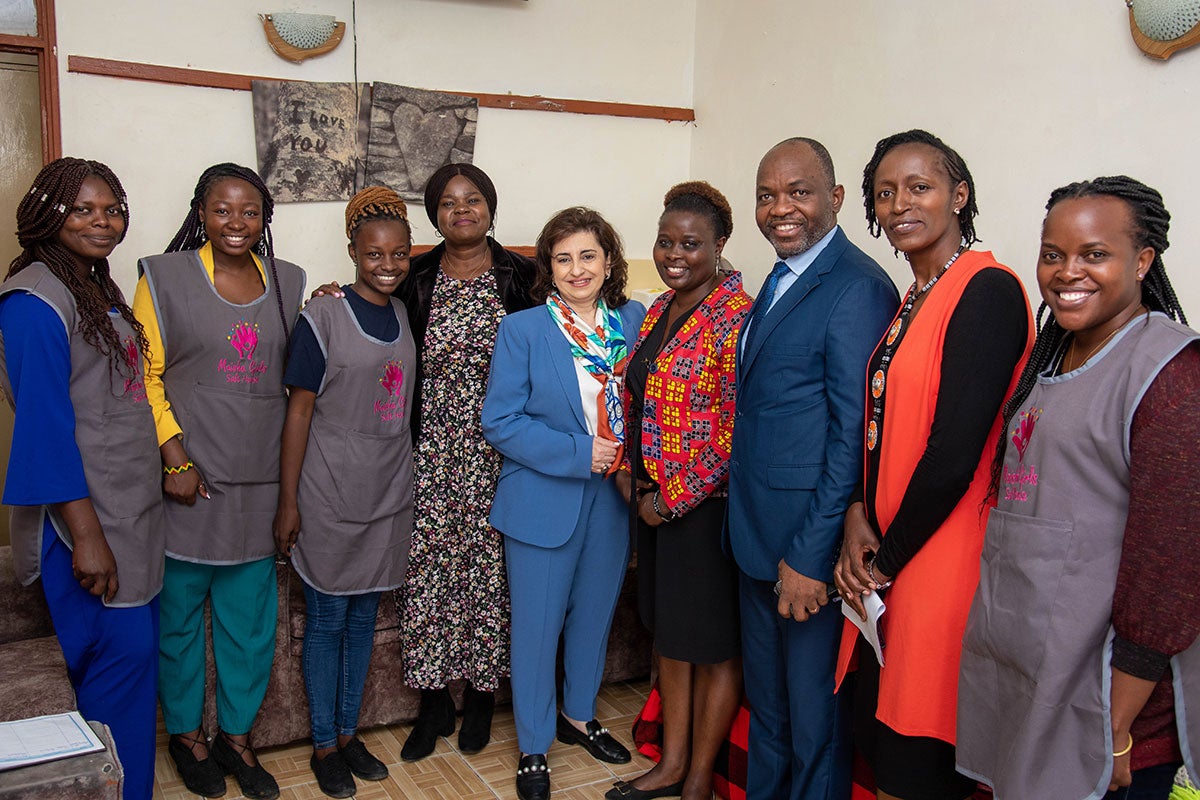
At a meeting with women’s rights organizations, the Executive Director discussed the state of women’s movement building in Kenya, Generation Equality commitments and progress of implementation, CSW67 outcomes and other top gender equality issues in Kenya. More than 40 feminists, women’s rights activists and advocates from across Kenya had a unique opportunity for a candid discussion with Ms. Bahous and commended UN Women for supporting their initiatives and amplifying their voices.
“We need resources. We need more African voices in different spaces to join the women’s movement in Kenya and last but not least, we need solidarity with our sisters in other nations, and to celebrate the gains we have achieved, and all the work we are doing,” said Ms. Memory Kachambwa, Executive Director of FEMNET.
Another participant, Joy Zawadi, Executive Director of Akili Dada, said: “There is a clear call for different generation activists to come together, and work together towards a shared agenda, especially to push towards realizing the two-thirds gender rule in Kenya. It is also important to ensure we have resources to drive gender equality work. A lot of women work towards a point of passion, and they give up themselves, to ensure we enjoy our rights, but we have to put our money where our mouth is to ensure full support of women in the community.”
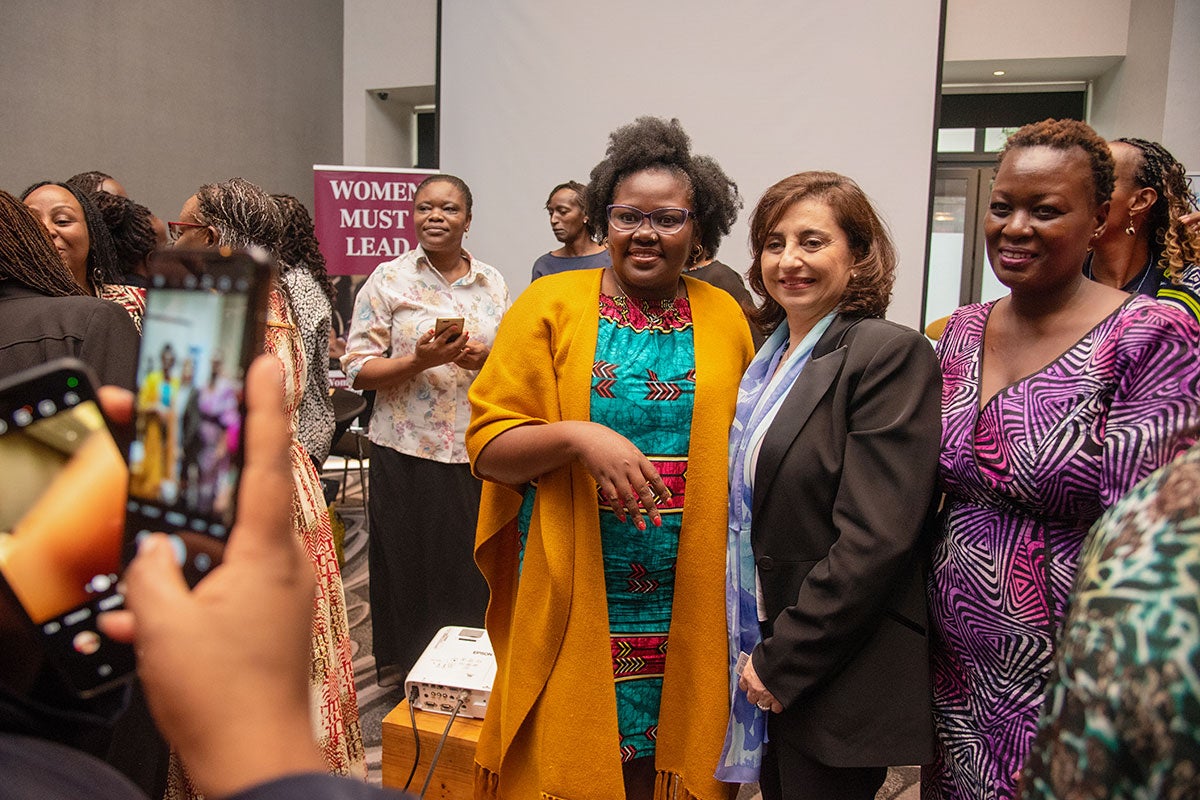
Referencing Generation Equality, Anika Jane of Amplify Girls, a member of the Beijing +25 Global Youth Task Force, commended UN Women for creating space for young feminists “in an unprecedented way”.
“Generation Equality is unique as it has created opportunities for young feminists to participate in shaping our future and is allowing us to reimagine skills,” said Janee.
UN Women Executive Director also met with staff of UN Women Kenya and the Regional Office for East and Southern Africa, commending colleagues for their steadfast and strong contributions to gender equality and women’s empowerment.
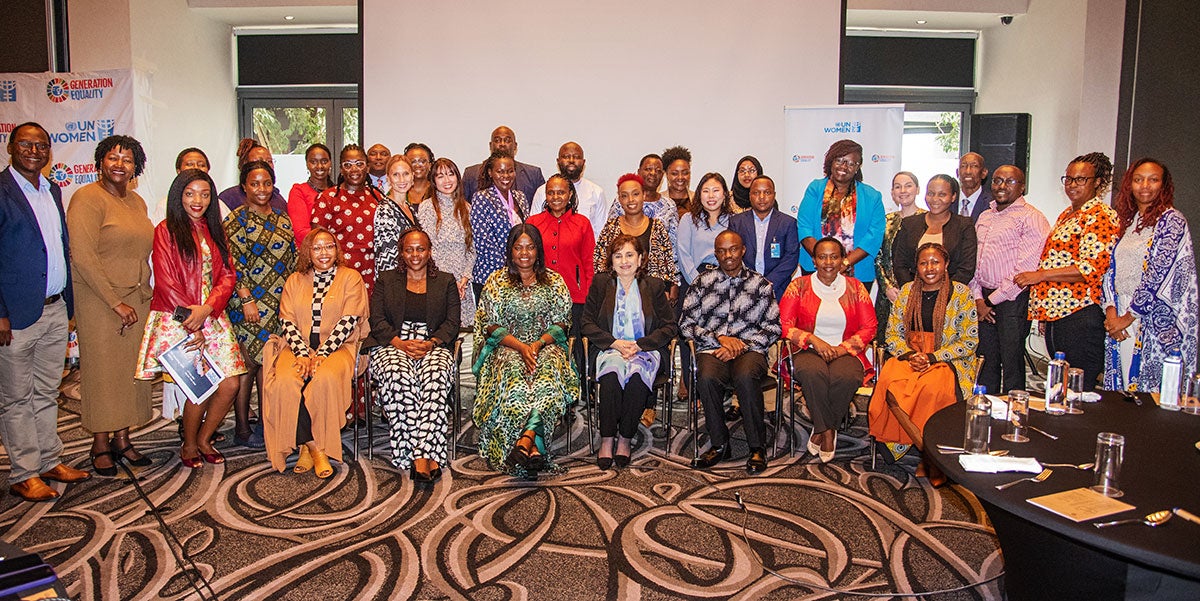
To conclude the mission, Ms. Bahous confirmed UN Women’s commitment and strong support as the country continues to advance women’s leadership and participation in decision-making.







